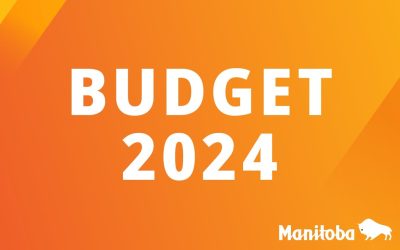CUTTING taxes, as Germany’s coalition government is learning, can be harder than raising them. On June 16th the country’s parliament approved a big increase in value-added tax, to take effect in 2007. Trimming Germany’s heavy corporate taxes is proving harder. German firms face tax rates of nearly 40%, the highest in Europe (see chart). The government wants to push them below 30%, to boost investment and discourage firms from moving to lower-tax countries, especially in central and eastern Europe. But the idea faces stiff opposition. “They’re reaching into the wallets of the little people to give corporations tax relief,” says Renate Künast, parliamentary leader of the left-of-centre Green party.
Ms Künast’s views are echoed by many politicians in many countries. There are few taxes politicians like more—and economists like less—than today’s levies on companies’ profits. Politicians much prefer to tax impersonal firms, which cannot vote, than workers, who can. America, for instance, has the second-highest rate of corporate-income tax in the OECD (behind Japan). Yet even George Bush’s tax-cutting administration has not sought to lower it. To economists, in contrast, the notion that firms pay tax makes little sense: in fact, people do.
But which people, exactly? If corporate taxes are borne mainly by shareholders, left-wing politicians can plausibly claim that cutting them is a boon to the rich, because richer people own more shares (even though the far-from-rich own lots too, through their pension funds). But if the taxes are shifted to consumers through higher prices or to workers through lower wages, reducing them would benefit Ms Künast’s “little people”.
Economists have been debating who pays corporate taxes for decades. In a classic paper in 1962, Arnold Harberger, an American economist, argued that if neither capital nor goods can cross national borders, the burden of corporate taxation falls squarely on the owners of capital. Neither workers nor consumers bear any of it. But nor does the burden fall solely on affluent shareholders. Mr Harberger pointed out that capital would shift between firms and non-corporate investments, such as partnerships or property. The tax’s burden would be shared by all owners of capital, including farmers and homeowners.
This analysis has since been refined by many researchers (including Mr Harberger himself). Most now agree that workers do, in effect, pay some of the tax formally levied on companies. One route is through lower saving. Corporate-income taxes, like all taxes on capital, make saving and investment less attractive. Lower investment means a smaller capital stock, less capital per worker and hence lower wages. Several studies have found a negative link between corporate-tax rates and investment.

Globalisation sharpens this effect. Capital can now move easily from high-tax to low-tax countries. That implies less investment and lower real wages in high-tax countries, but gains for workers in low-tax countries. The effect ought to be bigger in small, open economies, where an infusion of foreign capital can quickly boost productivity, than in large, less open ones.
Around the world, corporate-tax rates have been falling. Twenty years ago, most rich countries had a top rate of over 40%. Today, none does. Small economies with low corporate-tax rates, from Ireland to Slovakia, have boomed thanks to huge foreign investment. Anecdotal evidence suggests that workers have gained as corporate taxes have fallen.
Oddly, there has been little empirical analysis of the size of this effect. In a new paper*, Kevin Hassett and Aparna Mathur, of the American Enterprise Institute, a free-market think-tank, try to fill the gap. They examine the relationship between corporate taxes and wages for manufacturing workers in 72 countries over 22 years. Their goal is to tease out whether differences in corporate-tax rates affect wages once other influences on pay, such as productivity and the power of unions, are taken into account.
The results are striking. On average, a 1% increase in the corporate-tax rate is associated with a 0.8% drop in wages over the next five years. And, just as theory would predict, the effect is bigger in smaller economies than in larger ones. The economists find that international tax competition matters too: their work suggests that a 1% cut in a neighbouring country’s corporate-income tax pushes down wages at home by 0.5%. This suggests that corporate taxes have a huge effect on wages. At face value, it implies that if Germany cut its corporate-tax burden by 25%, as its government intends, wages ought eventually to rise by a fifth.
That is staggering—but almost certainly overstated. For one thing, the effect appears implausibly fast. In theory, the burden of corporate taxes shifts gradually from capital to workers as firms invest in low-tax countries. It is hard to believe that enough changes within five years to affect wages as much as Mr Hassett and Ms Mathur report. More likely, the strong negative link between corporate taxes and wages reflects the omission, or mismeasurement, of other things that affect pay.
But even if their precise figures look questionable, Mr Hassett and Ms Mathur make a point that politicians in Germany and elsewhere ought to heed. In today’s world, high taxes on companies hurt the “little people” they are supposed to please.
*“Taxes and Wages”: www.aei.org/docLib/20060315_TaxesandWages.pdf


